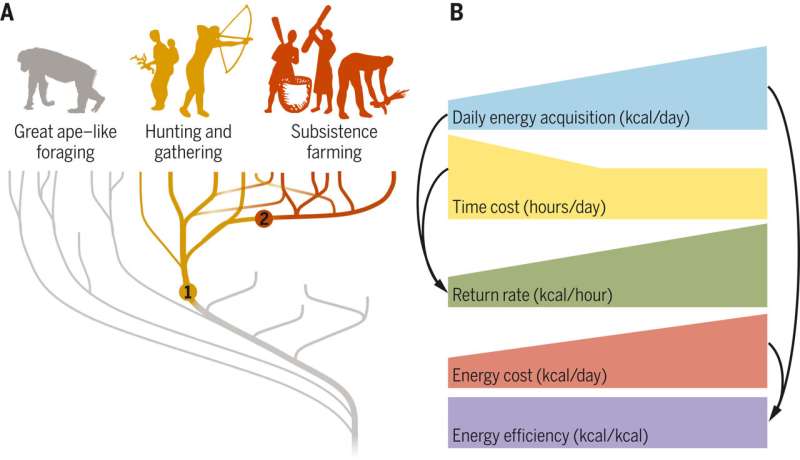Early humans gained energy budget by increasing rate of energy acquisition, not energy-saving adaptation

A team of researchers affiliated with multiple institutions in the U.S., the Institute for Advanced Study in Toulouse, France and the Max Planck Institute for Evolutionary Anthropology in Germany has found evidence that suggests early humans gained an energy budget by increasing their rate of energy acquisition, not by taking advantage of adaptive strategies. In their paper published in the journal Science, they describe their study of energy expenditure versus energy intake in early humans.
In this new effort, the researchers noted that humans long ago diverged in significant ways from the other great apes. They wondered how this happened and decided to look at energy intake and expenditure. People and other animals have to put in a certain amount of work (expenditure) to receive an energy intake. Climbing a tree to fetch a banana is a simple example. The amount of energy required to climb a tree far outweighs the potential benefit of eating a single banana. But if a single person is able to throw down multiple bananas, then the overall energy intake may surpass the effort of climbing a tree a single time…
…click on the above link to read the rest of the article…